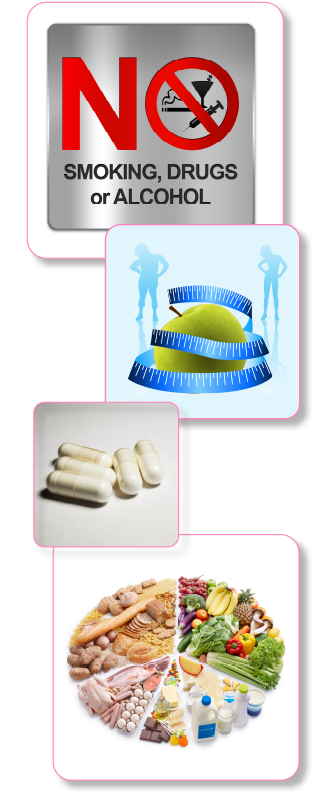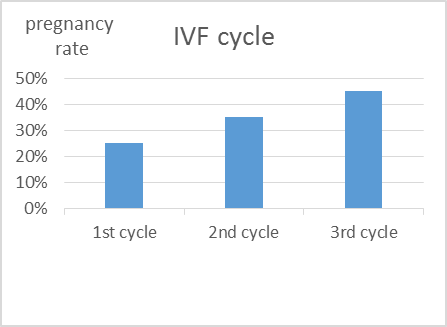General Advice for FertilityGeneral Advice for conceptionAlcohol- For women trying to conceive, they should drink no more than 1 or 2 units of alcohol (10-20 ml alcohol) once or twice per week and avoiding episodes of intoxication. This reduces the risk of harming a developing foetus.For men, alcohol consumption less than 3 units per day is unlikely to affect their semen quality. However, excessive alcohol intake is detrimental to semen quality.
Smoking
- Both active and passive smoking are likely to affect chance of conceiving. Both should be avoided once the woman plans to conceive. Caffeinated beverages - There is no consistent evidence of an association between consumption of caffeinated beverages (tea, coffee and colas) and fertility problems.
Obesity
- Women who have a BMI of 30 or over and who are not ovulating should lose weight, which is likely to increase their chance of conception. Low body weight - Women who have a BMI of less than 19 and who have irregular menstruation or are not menstruating should increase body weight, which is likely to improve their chance of conception. Tight underwear - Men should be informed that there is an association between elevated scrotal temperature and reduced semen quality. However, it is uncertain whether wearing loose-fitting underwear improves fertility. Prescribed, over-the counter and recreational drug use - A number of prescription, over-the-counter and recreational drugs interfere with male and female fertility, and therefore a specific enquiry about these should be made with regards to fertility and appropriate advice taken. Complementary therapy - The effectiveness of complementary therapies for fertility problems has not been properly evaluated and that further research is needed before such interventions can be recommended. Folic acid supplementation - Dietary supplementation with folic acid before conception and up to 12 weeks’ gestation reduces the risk of having a baby with neural tube defects. The recommended dose is 0.4 mg per day.
|
 |







|
|



